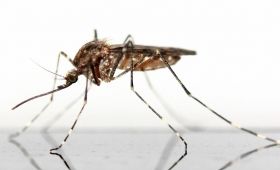Diagnosis of Zika infection is complex. Molecular tests for exposure are only reliable in the first two to three weeks after infection while the virus is circulating in the bloodstream. Antibody tests are confounded by cross-reactivity of antibodies to Zika with dengue, yellow fever, and Japanese encephalitis viruses following infection or vaccination. A new blood test called ZIKV-NS2B-concat ELISA is faster, less expensive, and extends the window of accurate detection from weeks to months after the onset of infection, giving clinicians a powerful new tool to screen for Zika throughout pregnancy.
The new Zika test is detailed in the scientific journal mBio and was developed by scientists at the Center for Infection and Immunity (CII) at Columbia University's Mailman School of Public Health and their colleagues at the University of California, Berkeley; Ministry of Health of Nicaragua; Walter Reed Army Institute of Research; Erasmus University Medical Centre; New York City Department of Health and Mental Hygiene; New York State Department of Health; and Roche Diagnostics.
To develop and evaluate the test, the researchers analyzed blood samples collected from children in the Nicaraguan Pediatric Dengue Cohort Study, all of whom had previously tested positive for Zika virus. Using a microarray, they identified a unique peptide sequence--a short section of amino acids--that binds with antibodies to Zika virus but not with antibodies to similar viruses like dengue, yellow fever, and Japanese encephalitis. Next, the researchers customized a low-cost testing technology called enzyme-linked immunosorbent assay (ELISA) to work with the sequence-improving on current versions of the ELISA test which use larger sections proteins that bind to the virus. (The researchers recently used the same method to build the first multiplex test for tick-borne diseases.)
Read more at Columbia University's Mailman School of Public Health
Photo Credit: buchse12 via Pixabay


